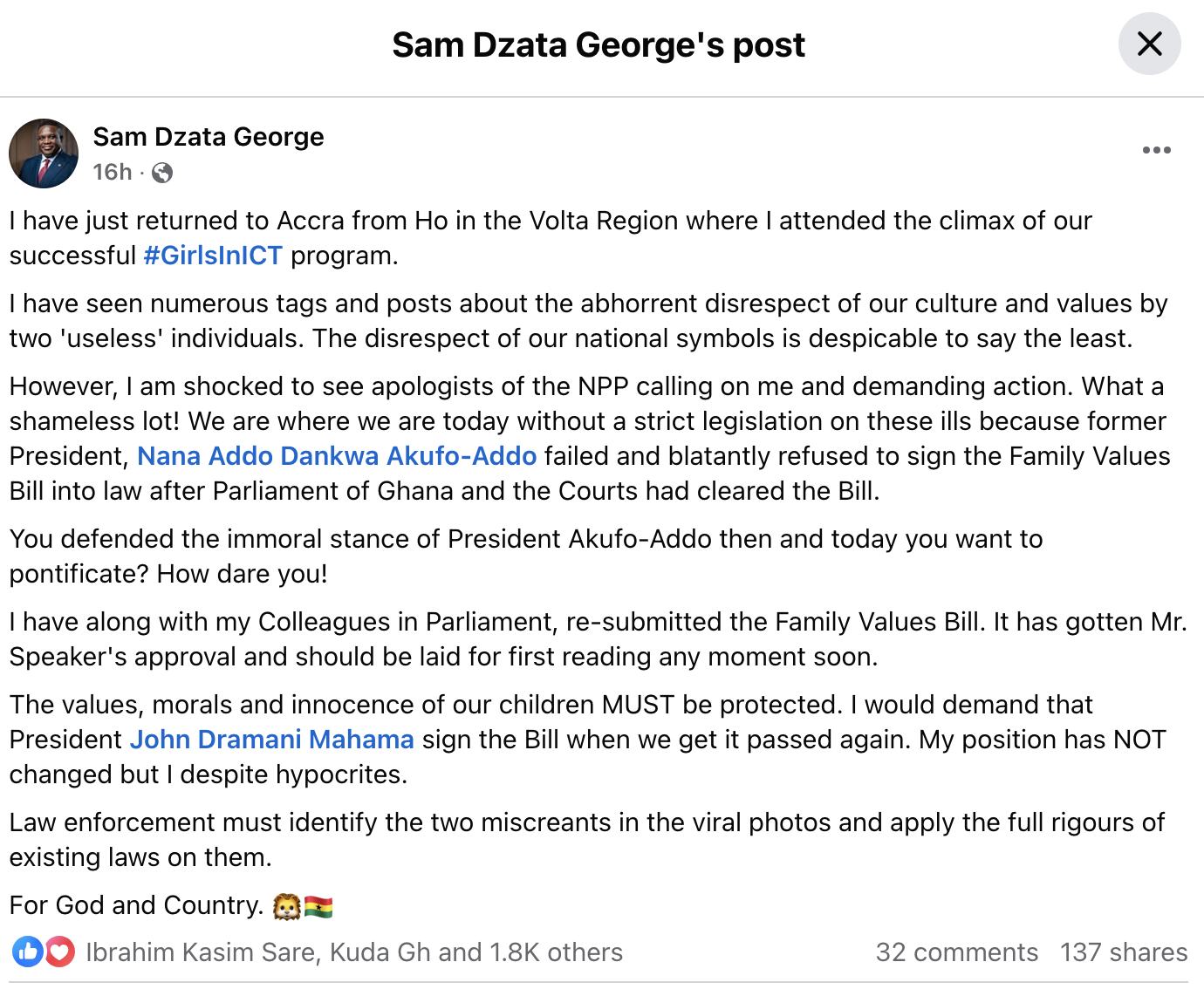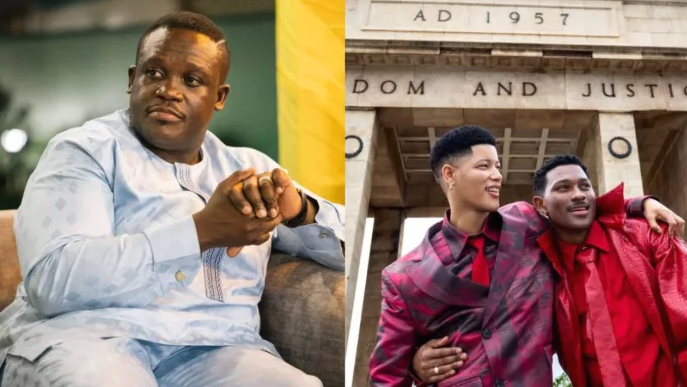|
Getting your Trinity Audio player ready...
|
Samuel Nartey George, Minister for Communications and Member of Parliament for Ningo-Prampram, has publicly addressed the viral images of a gay couple kissing at Ghana’s iconic Independence Arch in Accra.
The photos, featuring two South African men, Rue and Lue, dressed in matching red outfits and sharing an affectionate moment beneath the national monument, sparked intense debate on social media. While some praised the couple for their boldness and progressive stance, others condemned the act as disrespectful to Ghanaian cultural values and national symbols.
Amid growing calls for a response, especially from the Minority Caucus and conservative sections of the public, Sam George known for his strong advocacy of Ghana’s anti-LGBTQ+ legislation—finally issued a statement condemning the act.
Describing the display as “a gross affront to Ghanaian cultural values,” George labeled the couple as “useless individuals” and characterized their actions as a “despicable disrespect” of the nation’s symbols.
He also targeted critics from the opposition New Patriotic Party (NPP), holding the previous Akufo-Addo administration responsible for failing to assent to the Human Sexual Rights and Family Values Bill, commonly referred to as the anti-LGBTQ+ bill.
George stated, “You defended the immoral stance of President Akufo-Addo then, and today you want to pontificate? How dare you!”
He confirmed that the controversial bill has been re-submitted to Parliament, where it has received the Speaker’s approval for a first reading. He urged President John Dramani Mahama to sign the bill once passed, emphasizing, “The values, morals, and innocence of our children MUST be protected.”
Further, George called on law enforcement agencies to identify and prosecute the individuals in the viral photos, insisting that Ghana’s existing laws be fully enforced against such acts.
The statement intensifies the national discourse on LGBTQ+ rights and freedom of expression, underscoring the deep divisions within Ghanaian society over cultural norms and legislative responses.

Source: NKONKONSA.com


